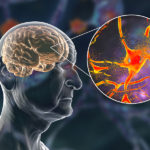By Bonnie Jenkins, Advanced Natural Wellness
Advanced Glycation End Products.
Of all the foods we eat, refined sugar is considered to be one of the most harmful. And we eat a ton of it. In face, sugar consumption has increased by 28 percent since 1983, fueling soaring obesity rates and other health problems.
The statistics on how much sugar we consume is startling. On average, every American consumes 158 pounds of the white stuff each year! And, according to Marion Nestle, chair of the Department of Nutrition and Food Studies at New York University, the consequences of eating all that sugar can be severe. She notes that, “Because sugary foods often replace more healthful foods, diets high in sugar are almost certainly contributing to osteoporosis, cancer, and heart disease.”
But it isn’t just that we are swapping broccoli for Cokes and Krispy Kremes. Sugar consumption contributes to the formation of advanced glycation end products (AGEs) that are linked to Alzheimer’s disease, atherosclerosis and other degenerative disease. The higher your Advanced Glycation End Products levels, the faster you age.
The ABCs of AGEs
Advanced glycation end products are formed when glucose (sugar) reacts with proteins in the walls of your blood vessels. The result is a hard caramel-like compound that interferes with multiple cell functions by changing the functions of proteins. Crosslinking occurs between adjacent protein strands and causes the blood vessels to become stiff.
MD Exposes the Hidden Danger to Your Eyes

When your eyesight starts to fail, it's a real problem. Suddenly you can't go to the grocery store... you can't get to the doctor if you have an emergency... you can't meet your friends for dinner…
Your "regular" doctor doesn't have time to keep up with the latest research. And the same goes for eye doctors. They go to school to learn how to fit you for glasses and contacts, but have no way of preventing the damage and loss of eyesight that threatens your freedom and independence.
Let me show you something that explains a LOT about how your eyes work.
In my FREE Special Report, I'll show you a HUGE, untapped resource for your eyes that safely and naturally restores clear, effortless eyesight.
Click here to get started...
Advanced Glycation End Products can cause a rise in C-reactive protein and homocysteine levels. They can also modify LDL cholesterol so that it becomes more easily oxidized and deposited in vessel walls – which can cause narrowing and reduced blood flow. Diabetics are at particular risk since Advanced Glycation End Products can cause complications like kidney disease, peripheral neuropathy and atherosclerosis.
While there is no way to measure Advanced Glycation End Products, if you eat large quantities of refined sugar, you can safely assume that your body is creating too many of these damaging compounds. But sugar isn’t the only culprit. Other “white” foods like bread, potatoes or pasta also contribute to the formation of Advanced Glycation Endproducts.
So, how much of a threat are Advanced Glycation End Products? Animal studies have shown that if dietary Advanced Glycation End Product intake is cut in half, the animals had an increased lifespan. A good place for us humans to start is by reducing the amount of refined sugar we consume. That means tossing out the sugar bowl and reading labels to find hidden sugar.
Cut Crosslinking with Carnosine
Since it’s almost impossible to avoid all added sugar – and since the biological impact of AGEs are largely irreversible – it’s a good idea to bolster your defenses against their damaging effects. One way to do this is by supplementing with carnosine.
This small molecule composed of the amino acids histidine and alanine helps defend the body’s proteins against the crippling effects of glycation. By preventing the formation of dangerous AGEs, carnosine may help the body’s proteins retain their youthful vigor and function. Studies also show that carnosine is a powerful antioxidant. Carnosine’s age-defying effects make this critical nutrient an essential cornerstone of every anti-aging program.
Carnosine is a safe, well-tolerated nutrient that is naturally present in the brain and skeletal tissue. But, even though the body contains its own supply, supplementing with additional carnosine can help protect the brain against oxygen deprivation and boost vision, especially as we age. Best of all, scientists now know that carnosine can effectively inhibit AGE formation and protein crosslinking.
Because carnosine is able to stop free radical damage and inhibit AGE formation, scientists think it may help manage a number of chronic conditions, including arthritis, ulcers, high blood pressure, adrenal dysfunction, sleep apnea, chronic inflammation, cancer, heart disease and Alzheimer’s.
A Stinky Solution
Are You Suffering From...
- Love handles and a pot belly
- Romance that isn't what it used to
- Forgetfulness and inattention
- Low (or no) strength and endurance
- A sex drive that's shifted into neutral...or worse
If so...you may have Mature Male Burnout. Click here to discover more about this unique condition and what you can do about it.
Aged garlic can also help prevent the formation of AGEs. It’s one reason that aged garlic supplements have gained a heart-healthy reputation. By thwarting AGEs, aged garlic reduces LDL cholesterol and improves the elasticity of blood vessel walls.
In a four-year study of 152 cardiac patients, a daily dose of 900 mg. significantly slowed the development of atherosclerosis. Another study, which measured the flexibility of the aorta of 200 patients, reported that the subjects taking garlic had more flexibility, indicating less plaque buildup.
The Advanced Glycation End Product-busting benefits of garlic are due, in large part, to a compound called allicin. This sulfur-rich substance is activated when the clove is crushed and allowed to sit for about 10 minutes. Allicin is then further broken down to a compound called ajoene, which may be the substance that inhibits atherosclerosis and blockages in blood vessels from clots.
If you’re just trying to prevent future problems triggered by AGEs, try eating fresh garlic as often as possible. If you’ve been diagnosed with atherosclerosis or if your diet includes large amounts of refined sugar, pick up an aged garlic supplement and take 900 mg. per day.
One Last Thing …
Want to give up the sweet stuff? Good for you! But, if you’re tempted to substitute artificial sweeteners for sugar, don’t! I know this is a tough one to follow: many of us rely on diet sodas when we are craving something sweet. But in my experience, NutraSweet, Splenda, and even low-carb sugar products don’t quell sugar cravings. In fact, they actually increase them. A study at the University of Texas Health Science Center in San Antonio found that a person’s risk for obesity went up a whopping 41 percent for each daily can of diet soda.
If you do fall off the wagon, don’t beat your self up. And, for heaven’s sake, don’t use the slip-up as an excuse to dive into a pan of brownies! Giving up sugar is hard. It’s ingrained in our holidays, in our meals, in our society. For those times when you just have to have something sweet, try substituting honey or agave nectar.
Agave comes from the same plant used to make tequila. Its sweetness comes primarily from a complex form of fructose called inulin that occurs naturally in fruits and vegetables. What sets agave apart from other sweeteners if that it has a low glycemic index. So you get the sweetness without the nasty “sugar rush” and unhealthful blood sugar spike caused by refined sugar.
This Just In …
Having a big head isn’t usually something we want to acquire – unless we’re talking about intelligence and not ego. And the bigger the brain, the smarter you are. So how can you maintain your big brain? It’s simple – at least according to new evidence that shows that taking vitamin B12 may help prevent brain shrinkage.
For the study, researchers from the University of Oxford analyzed blood samples from 107 healthy seniors. After comparing the serum level of vitamin B12 with brain size, they found that low levels of vitamin B12 were associated with brain shrinkage. It was so pronounced that people with the lowest levels of vitamin B12 were six times more likely to experience brain shrinkage than those with the highest blood levels.
For most Americans, getting enough vitamin B12 isn’t a problem – it’s plentiful in meat, dairy products and eggs. But vegans and people over age 60 may be suffering from a B12 deficiency. If your diet doesn’t include a lot of meat or dairy, it’s important to supplement with this critical nutrient. While vegans should take 3 mcg. per day, there is evidence that absorption of vitamin B12 is reduced with increasing age. Because of that, older adults should take 10 to 25 mcg. daily. It could be one of the smartest things you’ll ever do!
References:
Eussen S, de Groot L, Clarke R, et al. “Oral Cyanocobalamin Supplementation in Older People With Vitamin B12 Deficiency: A Dose-Finding Trial.” Archives of Internal Medicine. 2005;165: 1167-1172.
Hobart LJ, Seibel I, Yeargans GS, et al. “Anti-crosslinking properties of carnosine: significance of histidine.” Life Science. 2004;75:1379-1389.
Ravelojaona V, Péterszegi G, Molinari J, et al. “Demonstration of the cytotoxic effect of Advanced Glycation Endproducts (AGE-s).” Journal de la Société de biologie. 2007;201:185-188.
Vogiatzoglou A, Refsum H, Johnston C, et al. “Vitamin B12 status and rate of brain volume loss in community-dwelling elderly.” Neurology. 2008; 71: 826–832.
Yan SF, Ramasamy R, Schmidt AM. “Mechanisms of Disease: advanced glycation end-products and their receptor in inflammation and diabetes complications.” Nature Clinical Practice Endocrinology & Metabolism. 2008; 4:285-293.






